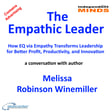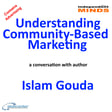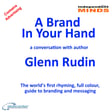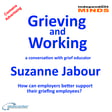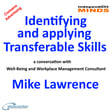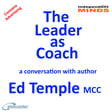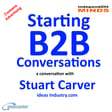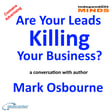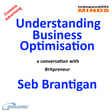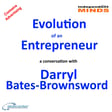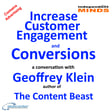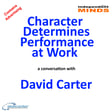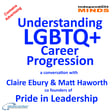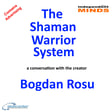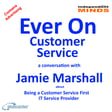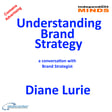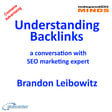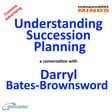
Leadership Opportunities for Working Mothers – a conversation with working moms coach Rebecca Olson.
Rebecca Olson is a working mom, who is using her experience of motherhood to help other working mothers to balance motherhood with achieving career objectives.
In this episode of the Abeceder podcast The Independent Minds, Rebecca explains to host Michael Millward a few of the issues that mothers face when returning to work after maternity leave and highlights the high number of women who change their jobs within 18-moths of their return to work.
Rebecca discusses the identity crisis that many mothers endure as they try to redefine life and work because of the changes that parenthood brings. She looks at the role line managers play in creating a successful maternity leave and return to work.
Michael and Rebecca discuss the Moms First Moms in the Workplace report identifying what it tells employers and managers who want to retain their talented mothers.
Rebecca is the host of the Ambitious and Balanced Working Moms podcast.
More information about Rebecca Olson and Michael Millward is available at abeceder.
The Independent Minds is made on Zencastr, because as the all-in-one podcasting platform, Zencastr really does make creating content so easy.
If you would like to try podcasting using Zencastr visit zencastr.com/pricing and use our offer code ABECEDER.
Travel
With discounted membership of the Ultimate Travel Club, you can travel anywhere else at trade prices on flights, hotels, trains, and many more travel related purchases.
Fit For Work Look after your health and you will be fit for work.
It is important for entrepreneurs maintain good mental and physical health. That is why we recommend The Annual Health Test from York Test; a 39-health marker Annual Health Test conducted by an experienced phlebotomist Hospital standard tests are carried out in a UKAS-accredited and CQC-compliant laboratory.
A secure Personal Wellness Hub provides easy-to-understand results and lifestyle guidance
Visit York Test and use this discount code MIND25.
Three the network Visit Three for information about business and personal telecom solutions from Three, and the special offers available when you quote my referral code WPFNUQHU.
Being a Guest
We recommend that potential guests take one of the podcasting guest training programmes available from Work Place Learning Centre.
We use Matchmaker.fm to connect with potential guests If you are a podcaster looking for interesting guests or if you have something interesting to say Matchmaker.fm is where great guests and great hosts are matched and great podcasts are hatched. Use our offer code MILW10 for a discount on membership.
We appreciate every like, download, and subscriber.
Thank you for listening.
